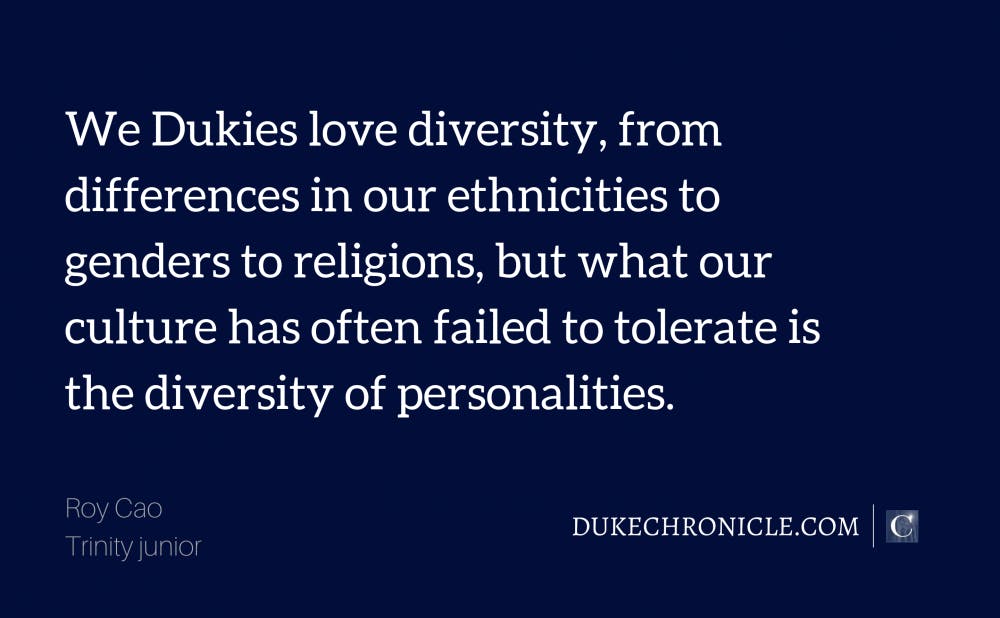One of my favorite childhood stories was about a ruthless innkeeper on a deserted island. Whenever sea-folks sojourn in his hotel, he would bind them to a chair and measure their heights. Those he thinks to be too tall he would cut and butcher, and of those he thinks to be too short he would pry their joints apart until all his guests fit into a certain height that the innkeeper considers to be ideal. The moral of the tale is simple: we cannot expect everyone to be the same, whether physically or psychologically, and it is immoral to twist people into what they are not to satisfy our own standard.
A deeper inquiry into the innkeeper’s motive reveals something more sinister: since he has no practical purpose in chopping up or forcefully stretching people, the only reason why he would commit himself to such inhumanity is to satisfy his own vanity. By believing his self-made standard to be over and above everyone else, he gains a moral authority to alter people in whichever ways he wants to, with no room for self-doubt or remorse.
But the cruel irony of this children’s story, like that of all allegories, is that it replays itself in real life, over and over and over again. We Dukies love diversity, from differences in our ethnicities to genders to religions, but what our culture has often failed to tolerate is the diversity of personalities. Emerson said, “to be yourself in a world that is constantly trying to make you something else is the greatest accomplishment.” I agree with him. In many cases, it is the differences in our convictions that make us into individuals.
As I grew up, my surroundings constantly whispered to my subconscious, feeding me the linear thinking so well-known to teens: don’t be a loser. So, we acquaint ourselves with people we may or may not like, join clubs and activities we may or may not be interested in because our friends are there, and say things we may or may not mean, all so that we do not feel “left behind” by the masses of young people with a thousand followers on Instagram. Our campus culture, driven by the ever expanding social media storm, has become the inn keeper that demands that we behave in certain ways in order to be accepted by our surroundings. While it is human nature to want to mix in, it is also unnatural to push things down our own throats. The truth is we do NOT have to blend into everything everywhere, and it is perfectly okay not to let yourself be brutalized by the innkeeper.
There is little reason in changing ourselves to gain the favor of people we share no connection with. While many first-years are on a social rodeo to gain a sense of recognition in a new environment, what many upperclassmen have developed is instead a nice little niche for themselves—a close circle of friends and groups with whom the upperclassman can truly connect to and rely on. Some parts of me only wish that I had found mine sooner, and many of my friends have expressed the same thing.
While it is healthy and human to form our own circles, we also shouldn’t become innkeepers ourselves. Groups form out of shared interest and beliefs, and these interests and convictions are often at the core of our personalities. One of our most important conflicts as young adults is our morphing view of the world, manifested in our political expressions.
The campus is certainly a heated place, with not just a hurricane but calls for reparations and name-changing and upcoming midterm elections and more. How many times have we seen speakers take up the voice of “the people” to express their own opinions, all the while wielding the almighty will of their “majority”? It is with such petulant temper that these speakers hide behind their umbrella of “majority”—an umbrella that even someone like me can see through. It is a form of ego closely resembling that of the innkeeper. While people on either side of the aisle argue for their points, filling the air with “everyone should do this/think this way/like this/hate this” in the voice of God, there should also be space for skepticism and humility. It is better that we carry ourselves with care rather than the innkeeper’s self-appointed divinity. We must seek to persuade, rather than impose.
Jesus said that God is merciful, as He lets the sun shine on both the righteous and the wicked. I would like to leave that with you, whether you are a Christian or not. Whether you think it is “right” or “wrong” to blend in, or whether you think it is “right” to repudiate someone else or not, it is best not to try to make others into your own image—and become an innkeeper trapped in desolation.
Roy Cao is a Trinity junior. His column runs on alternate Fridays.
Get The Chronicle straight to your inbox
Signup for our weekly newsletter. Cancel at any time.

